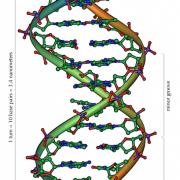The Elements of Change
(This weeks post is written by Leo Babauta from his blog Zen Habits.)
Change can be a difficult thing. Most people want to change their lives, in some way, but find it difficult to either get started or to sustain the change for very long.
I’m happy to report that after years of studying it, I’ve become fairly good at it (though happily failing all the time). I actually relish change, not because I feel I need to improve my life, but because in change, I learn new things. Constantly.
What have I learned from my changes? I could write a book on this (and probably will someday), but the essence can be found in the space between the inevitable fact of change, and in the incredible resistance to change inside ourselves and in the people around us. We want to change, and yet we don’t. How do we resolve this tension?
It can be incredibly difficult, or it can be wonderfully joyous. I’m here to show you the elements of the joyous path to change. The difficult path … I think we can each easily find that on our own.
My Recent Changes
I’ve made dozens of changes over the last few years (read My Story for a partial list), but here’s a short list of a few I’ve made just this year:
- Lost over 40 lbs since last year. I’ve not cared as much about losing weight — it’s just a number — but more about losing some fat and getting fit. The weight loss has really been a side effect of that focus. I’ve tried a lot of different methods, but I’ve found that only two things matter, and they’re ridiculously obvious: cut back on calories and increase the calories you burn through activity. Finding ways to do those two things has been the fun part.
- Gave up our car and walk, bike or use public transit everywhere. I’ve slowly been reducing how much I use a car, and increasing biking and walking. Then we drastically made the change just a few weeks ago when we sold our van, moved to San Francisco, and have been car-free ever since.
- Began walking more. Obviously this goes with being car-free, but even when we had our van I would walk for an hour or three on many days, just for the simple pleasure of it.
- Eat foods with no or little packaging. From bulk bins or farmer’s market, with reusable containers, if possible. I strive for fresh fruits and a variety of veggies, plus beans and nuts and whole grains and seeds. None of this needs packaging, all of it is great for you.
- Gave up almost all of my possessions. I was slowly whittling away at my possessions, then took a huge leap when we sold or gave away almost everything and moved to San Francisco. We’ve bought some furniture (mostly used) but haven’t come anywhere near the (modest) amount of possessions we had before.
- Started working less. A task needs to meet a high threshold of importance for me to consider doing it these days. This means I work fewer hours but am more effective during those hours.
- Drastically reduced the time I spend online. I love online reading, and connecting with others, but it can really eat up your life if you let it.
- Focused more on being in the moment.
- Stopped setting goals and planning so much. I used to be a rigid planner and goal setter, just a couple years ago. You can see it in my old posts here on Zen Habits. I’ve dropped that habit, mostly.
- Instead, embraced going with the flow.
Again, this is a short list — there are others that are less noteworthy, and probably a few I’m forgetting.
The Elements of Change
So what’s the joyous path to making these changes and others? I’ve broken it down into six elements, many of which overlap and have very blurred lines. They’re useful, though, in considering how to make potential changes in your life.
1. Beating inertia. We all have inertia — that resistance to change, especially major change that disrupts our living patterns or way of thinking. Sometimes it’s not difficult to overcome — we can get excited to make a big change and want to overhaul a certain part of our lives. The joyous path, though, is in the middle ground between no change and drastic change. It’s in small changes — as small as possible. Small changes mean it’s not hard to get started, but also that the change is sustainable. If you make a drastic change, there is a great likelihood that it won’t stick very long.
If you’re feeling that inertia, set out to make as tiny a change as you can — just get out and walk for 5 minutes, or start writing or painting or playing your violin for 5 minutes. You can do anything for 5 minutes — it should seem ridiculously easy, but that’s the point.
2. Beating the resistance of others. This resistance can be even tougher to beat than your own inertia — very often people in our lives do not want change. They’ll be negative, or even actively try to stop us from changing. There are various strategies for beating this: ask for their help and get them on your side, or negotiate a way for you to make change without disrupting their lives too much, or if necessary, cut them out of your life for a little bit. Read more.
3. Finding the joy. Here is the key to it all. Forget the rest of these steps if you need to, but never forget this one. Doing something you hate is possible, for a little while, but you’ll never sustain it. If you hate running, you’ll never keep up the habit for long. You need to find the joy in doing the activity, and when you do, you’re golden. So either choose an activity that you love, or find something to love in the activity, and grab on to that.
4. Keeping the joy alive. Joy can be fleeting, and to keep it going, you need to nurture it. This is an art form, and I can’t give you step-by-step instructions here. If I could, I’d be a billionaire, as it would change the world. But some advice: be grateful for your joy, every day. Be in the moment with that activity, instead of having your mind drift elsewhere. Refresh your joy often, by starting over or approaching things from a new angle or doing something a bit differently. Find new people to share this joy with, people who love it as much as you.
5. Celebrating the little victories. We often get discouraged because we’re not as far along as we’d like: we don’t have those six-pack abs yet (after a month of exercise!) or we’re not a full-time blogger yet (after three months of blogging!). But we forget how far we’ve come. Every step along the path is a victory, not because we’ve accomplished a goal but simply because we made the step. Celebrate those steps — jump up and down in joy, scream Halelujah, brag about it on Facebook, post a victorious message in bold marker on your fridge. You rock.
6. Making it a part of your life. Whether a change stays with you forever or not, making a change has value, in the momentary joy you get from doing it, and in what you learn from it. But making a change stick can be a great thing. To integrate change into your life, it must become a part of your daily routine. If you want to meditate, you need to do it at a regular time: right after having your coffee and before showering for work, for example. Having the coffee becomes your trigger for this new habit, and as the coffee is already integrated into your life, it becomes an anchor upon which this new habit will be grounded. The more times you do the new habit after this trigger, and the more regularly you do it, the more firmly it will stick.
And lastly
One last note, to anyone making changes: you will fail. I don’t say that to discourage you, but to release you from the fear of failure … because if you already know it will happen, then there’s no pressure to avoid it. Failure is an inevitable part of change, and in fact it should be celebrated — without failure, we’d learn nothing. Fail, fail often, and learn. Then you’ll be better equipped for the next attempt. Find joy in every attempt, in every victory, in every failure, and the change will be a reward in itself.
Zen Habits is one of the Top 100 blogs in the world, with about 185K readers. Zen Habits features articles on: simplicity, health & fitness, motivation and inspiration, frugality, family life, happiness, goals, getting great things done, and living in the moment.
Leo Babauta, the creator and writer of Zen Habits, is married with six kids(!), Recently moved to S.F., is the author of a new best-selling book, The Power of Less: The Fine Art of Limiting Yourself to the Essential, in Business and in Life.
If you liked this post, please leave a comment and/or share it with your social networks.
TMan
Ted A. Moreno Personal/Small Business Coach Certified Hypnotherapist www.TedMoreno.com (626) 826-0612










Thanks Ted! I also say there is no such thing as success or failure, just results. If you don’t like the result (“failure”) just learn, do it differently, reload & keep moving forward!